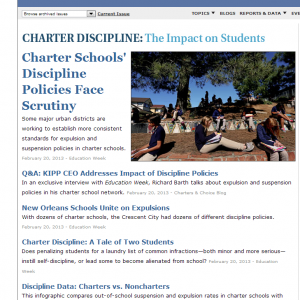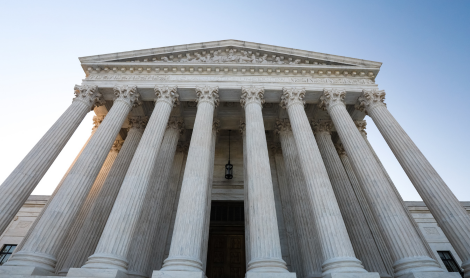Yesterday, the SUNY Charter Schools Institute hosted a seminar for authorizers and charter school leaders on the laws governing school discipline. In New York, as in most states, charter schools have broad discretion to implement the discipline policy that was approved as part of their charter application. In some states, charter schools are subject to the same state laws governing discipline in district-operated public schools, while in others they are exempt from the law but must still implement their approved policy. And every charter school, in every state and just like every other public school, must provide due process as guaranteed by the 14th Amendment to the U.S. Constitution and granted to public school students by the Supreme Court in 1975 in Goss v. Lopez.

The seminar was timely as discipline in public schools and in charter schools in particular is attracting increased public scrutiny. Initiatives like the one in New Orleans and the transparency work being done in Connecticut and by the D.C. Public Charter School Board in Washington, DC, are likely to spread to other cities that are welcoming charter schools into their communities, not as exclusionary enclaves or pressure valves for a fortunate few, but as full partners with equal public resources and equal public responsibilities.
As Education Week’s excellent, recent series on charter school discipline showed, concerns about charter school discipline are often about ideology and politics than facts and reality. But the autonomy that charter schools have–and that all schools need to succeed–does raise real challenges when it comes to ensuring that all students have an equal opportunity to thrive in a school of their choice. We would do well to face these challenges head on.


